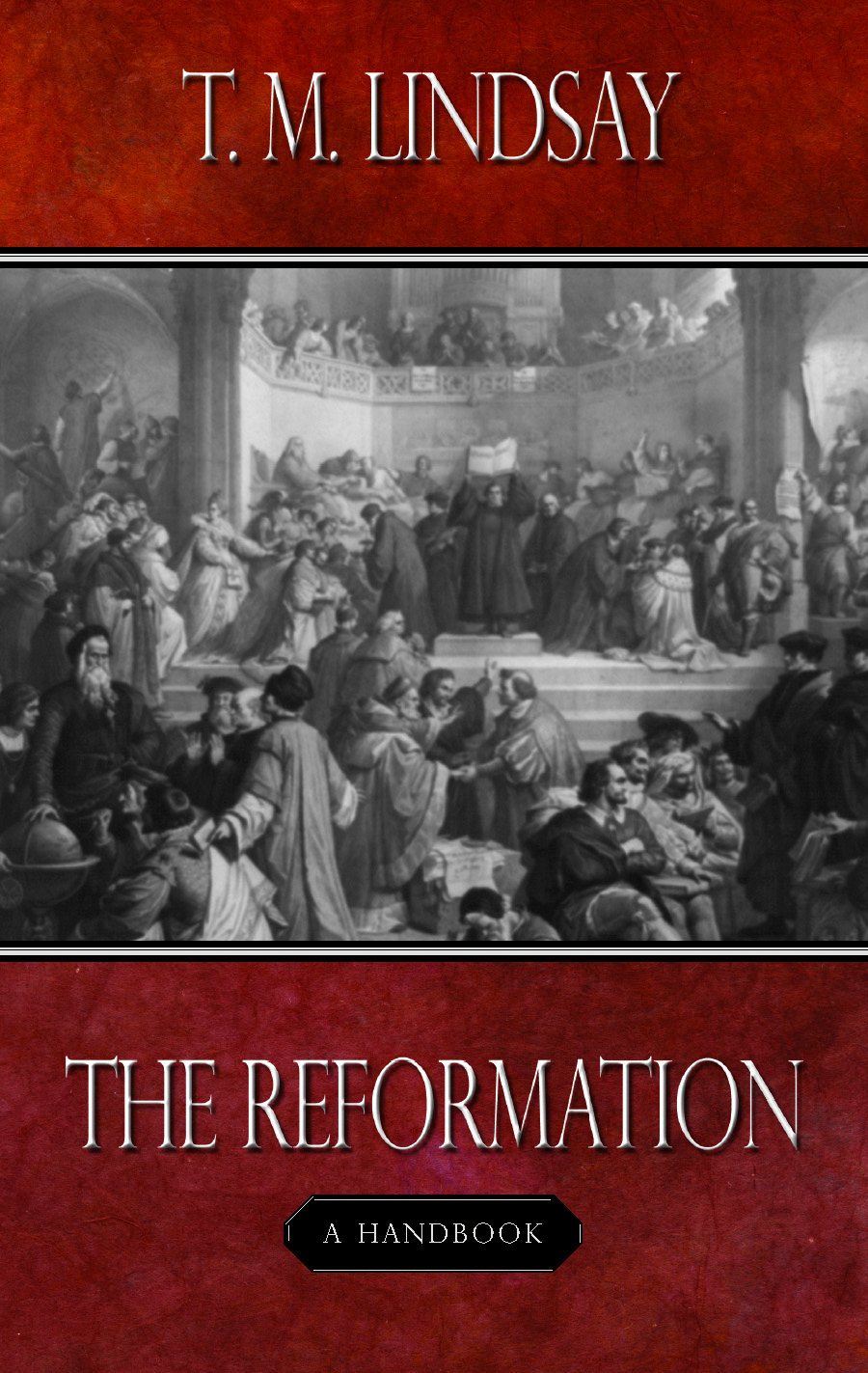Lindsay on the Reformation – A Review
Protestantism can be an embarrassing concept at times . . . For the first twenty years of my life the term was identified with the Troubles which raged around my generation, and the ugly notion of taking aggravated and hostile sides against ‘the other sort’. As school life at a Protestant boys’ school gave way to university and diversity, my sense of malaise about being a ‘Protestant’ intensified, leading me eventually to energetically distance myself from the term and those who espoused it. ‘Evangelical’ or simply ‘Christian’ were labels enough for me without the cultural entailment of heated and scripturally-infused invective which ‘Protestant’ seemed to embody. The most prominent spokesmen for ‘Protestant’ communities in our political life did little to temper my disgust at much of what was identified with my own cultural heritage. Looking back, such shame at one’s heritage and background can scarcely be a healthy thing.
This is where the Banner of Truth and other Reformed publishers came into play as I read my way through my twenties. The books published by them and the articles within their magazine brought me face to face with a Protestant viewpoint emancipated from the hateful caricature which is painted on gable walls, and etched upon the never, never, never-land fantasies of politically contorted Christianity, or spiritually distorted politics. The Banner allowed me to approach Protestant thinking from an historical, theological and more sociologically nuanced perspective, in which the intellectual underpinnings of the great movement for spiritual change in the sixteenth century were shown to be glorious and grand in many respects.
The gradual changes which have taken place in my thinking were recently thrown into bold relief by my reading of T. M. Lindsay’s The Reformation: A Handbook.1 Written as a shorter version of Merle D’Aubigné’s magnum opus, Lindsay’s 288-page work is designed to demonstrate that the Reformation, and the Protestant heritage which emerged from it, were nothing short of a revival of religion – and one for which we ought to be enormously thankful.
Lindsay’s procedural basis is plain and simple, although his engagement with the issues is by no means facile or smugly uncritical. The book views history through the lens of geography, demonstrating how the liberating effect of the Reformation took hold across Germany, Denmark, Sweden, Switzerland, France, the Netherlands, Scotland and England. Lindsay is keen to show that God’s providence lay behind the events of the sixteenth century, but not so keen as to lose his poise or critical facility as an historian. Where benefits were brought by the Reformers, Lindsay is quick to highlight them, but is likewise careful to trace the shortcomings and ideological failures which were embodied by almost every expression of the Reformation across the European countries he highlights. At times the detail in the book can be a little overwhelming, but it does give it a feel of being scholarly as well as popular, and this is refreshing when it comes to an issue which is too often handled emotionally rather than intellectually.
For me the strongest section of the book was Lindsay’s depiction of the Reformation in England, with a balance of empathy with those who shed their blood to see the evangelical faith established, and sympathy for the antagonists of the Reformation, with Mary Tudor in particular depicted with depth and pathos which could easily be lacking in such an account. Lindsay’s tracing of mediaeval trends which pressed for reform prior to the events of the sixteenth century is also refreshing, and alleviates some of the ‘line in the sand’ thinking around this historical period which can be most unhelpful.
Lindsay’s work is an excellent example of good historical writing, with an evangelical bias. This book is not the Banner of Truth equivalent of ‘The Reformation for Dummies’ but is a serous study of the great movement of God in the sixteenth century, distilled into a brief and terse account which draws the reader in and maintains their attention throughout.
Under the terms outlined by Lindsay it is possible for previously disillusioned people like me to realise that there is much to be proud of in Protestant heritage. It does not need to imply hatred for those who differ, or a polarised ‘them and us’ mentality which demonises other communities, but can stand as a social, moral and spiritual identity which prizes liberty of conscience, earnest enquiry and intellectual probing of those things which are taken as absolutes within society. I’m a long way from identifying myself primarily, chiefly or even readily as a ‘Protestant’, but books such as The Reformation give good reason to probe further into the rich heritage which belongs to those who come from such a background.
Notes

The Reformation
A Handbook
price £7.75Description
Protestantism can be an embarrassing concept at times . . . For the first twenty years of my life the term was identified with the Troubles which raged around my generation, and the ugly notion of taking aggravated and hostile sides against ‘the other sort’. As school life at a Protestant boys’ school gave way […]
Taken from Andrew Rowcroft’s ‘Double Usefulness’ blog, with permission.
Latest Articles
Finished!: A Message for Easter 28 March 2024
Think about someone being selected and sent to do an especially difficult job. Some major crisis has arisen, or some massive problem needs to be tackled, and it requires the knowledge, the experience, the skill-set, the leadership that they so remarkably possess. It was like that with Jesus. Entrusted to him by God the Father […]
Every Christian a Publisher! 27 February 2024
The following article appeared in Issue 291 of the Banner Magazine, dated December 1987. ‘The Lord gave the word; great was the company of those that published it’ (Psalm 68.11) THE NEED FOR TRUTH I would like to speak to you today about the importance of the use of literature in the church, for evangelism, […]
